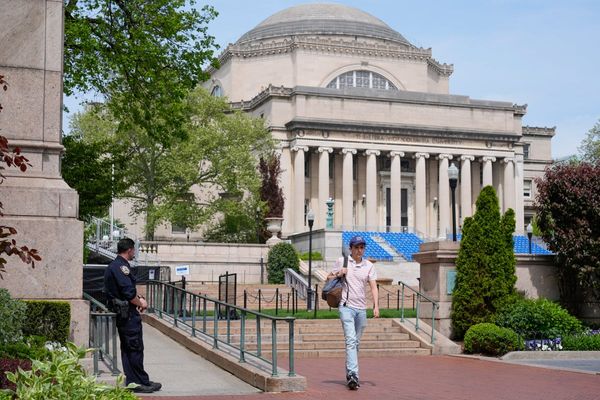
It is the most expensive French TV series ever made – the saga of a paranoid young monarch and the sex, violence and intrigue in his court. The blockbuster drama Versailles begins on BBC2 next month, France’s latest bid for international TV success.
The Sun King Louis XIV, an absolute monarch who built the vast Château de Versailles and set France on a path towards a revolution that would come decades after his death, has been the subject of scores of mini-series and films over the years.
But the French broadcaster Canal+, which has found growing success exporting its TV series worldwide, decided to sidestep the cliche of a powerful old monarch in tights, instead focusing on the king in his 20s, fragile and vulnerable, just as he decides to build the palace and move the whole court from Paris.
It is the story of a young man’s image control, his plotting, bed-hopping and his intriguing love-hate relationship with his younger brother Philippe, Duke of Orléans, known during Louis’s reign as Monsieur.
In an act of defiance, Canal+ hired two Hollywood-based British writers, David Wolstencroft and Simon Mirren, who met while working on the BBC series Spooks and who were sceptical about costume dramas. They felt historical fact was a loose starting point for dazzling fiction and sensed Louis XIV might have been something of a psychopath.

The writers gave the king’s story the dramatic treatment of a police thriller, while telling press junkets that he reminded them of Steve Jobs building the Apple brand. As if this wasn’t outrageous enough, Canal+ hired an English-speaking cast and shot the series in English. It drew the line at filming in eastern Europe, which the writers had warned would be ridiculous and the ultimate taboo.
Broadcast in France last autumn, Versailles gave Canal+ its biggest ratings in years for a fictional series, averaging 1 million viewers for the first few episodes. It was the first French series to have a second season commissioned before the first had aired.
A recent Mail on Sunday article warning that Versailles was “dressing up pornography and violence in a cravat and tights” was dismissed as nonsense in France, deemed no more than a dig at the BBC. Producers have acknowledged that the first episode does have its fair share of sex and violence, but things calm down a bit after that.
“A producer told me that in general terms nowadays a TV series has to have a scene of sex or violence every 15 minutes, although that wasn’t set out as a specific rule,” said Mathieu da Vinha, scientific director of research at the Château de Versailles, who was an adviser to the series.
He told the Guardian he didn’t think there was necessarily more sex in Versailles than any other modern TV series. “Sex has always existed,” he shrugged. “What’s clear is that Louis XIV liked women a lot and had quite a lot of sexual relations. And Monsieur liked lots of men and had a lot of relationships – his wife found him in bed with men many times.”

Da Vinha advised on details ranging from shaving methods to foreign diplomacy, but he stressed Versailles was a work of fiction. “The only thing I drew the line at was [the king’s valet] Alexandre Bontemps being depicted as gay. I’d written a book about him. He had a wife and children. If I accepted, I would have lost all credibility as an adviser, so they took my view.”
It wasn’t so much the English language that raised eyebrows among French TV critics, who all agreed that the leads – George Blagden as Louis XIV and Alex Vlahos as his brother – did an impressive job. Nor was it the brazenly fictional elements. It was more the expensive production values. With an overall budget of €30m, each episode of Versailles is rumoured to have cost twice as much as an average episode of Downton Abbey.
Versailles’s stylised look was so slick it was considered faintly perturbing. Point de Vue magazine warned of its “curious artificial light”. The paper 20 Minutes, while praising its “definite dramatic intrigue”, said it seemed “not far from caricature”. Le Monde lamented that the king’s colossal project to build Versailles had been “more or less reduced to the framework of a first-generation video game”.
But these production values meant Versailles was swiftly sold for broadcast across the world, including in the UK and US.
Canal+ has made a name for itself through dark, gritty, realist French dramas such as the international hit Spiral, which also aired on the BBC. Its ghostly alpine saga The Returned drew nearly 2 million viewers per episode when it ran, subtitled, on Channel 4.
Versailles marks a deliberate departure from dark realism towards more “luminous glamour”, said Fabrice de la Patellière, head of fiction programming at Canal+.
“It was made in English for pragmatic reasons of production and export,” he said. But he said using English to tackle France’s most emblematic king was also a creative choice. “It was fun to work with British writers and actors, and, importantly, it allowed us to step back and take a kind of distant, offbeat approach.”







